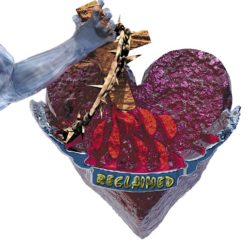“Chaplaincy is a ministry of presence, outside the walls of a church.”

Originally credentialed as a chaplain in 2017, Christian currently holds his ordaination with Chaplain Fellowship Ministries, International Inc.
Although I have volunteered and served in many areas of ministry, and was for a time serving as an “acting chaplain” at the local county jail, I had never pursued credentials, because a core belief of mine was that credentials are not required to do good works–but sometimes they are required to serve in your area of conviction or calling! As a result of a state accreditation process at our county Jail, I lost my visitation privileges as requirements for credentials were implemented, causing me to realize that a spiritual credential will not fill a requirement for a physical credential!
– Christian Naef
Ordained Master Chaplain
As it turns out, well-meaning Christians with ministry experience often do not have the training and education required to fulfill the billet or effectively serve as a chaplain. This is why special training is required for individuals who are trusted by law enforcement and emergency personnel, who serve as volunteer chaplains.
As a non-religious “constitutional chaplain”, training is required to equip one to serve effectively and competently. I have completed the following training:
- Chaplain Preparedness
- Balance Between Chaplaincy & Family
- CISM (Critical Incident Stress Management) for both Groups and Individuals
- Group Crisis Intervention
- Individual Crisis Intervention
- Crisis Response
- PTS/PTSD/TBI
- CERT (Community Emergency Response Team)
- Disaster Response
With both man-made and natural disasters, chaplains assist the hurting in shelters, after public acts of violence, and at accident scenes to comfort, assist, and sometimes pray with those who are hurting, as chaplaincy is an open door to bring aid and comfort to someone in their time of greatest need.
Chaplaincy originated with the Christian faith. While evangelism is important, and salvation truly is every human’s most urgent need, our politically-correct society now allows even atheists and occultists to serve as head chaplains, and many government and private organizations expect or even require that Chaplains refrain from proselytization. In keeping with James 2:14-18, sometimes our best response to show the Love of Christ is to meet their physical (or emotional) need.
Being a chaplain fits my desire to serve and equip others to serve outside the church, with the concerns of the individual-in-need in mind. Regardless of a victim’s religious preference, theology, or spiritual awareness, a chaplain listens, counsels, and serves with compassion and without an agenda.
Chaplains stand ready to assist veterans, first responders and their families with support, emotional and spiritual care, and to answer the call in times of natural or man-made disasters that affect our community.
